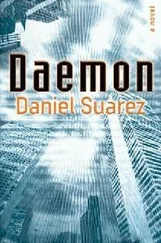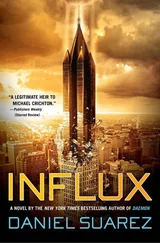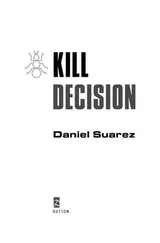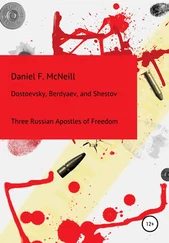But more shocking was that as Boerner’s arm reached into the fabric of D-Space, the polygon count on the Nazi’s 3-D model increased several orders of magnitude. Boerner’s arm went from that of an online game sprite to a fully realized human being. The arm reaching out to Loki from beyond reality was that of a real-life SS officer, the pores on his leather gloves, and the weave in the fabric of his greatcoat sleeve all too apparent, flexing as he reached out.
“Free me from zis place. Vat human do you trust? Vat human trusts you? Zey have used you, Mein Herr. Vizout you, zer vould be no darknet. Ze Daemon vould have failed. Zey don’t understand us. Zat zey need us.”
Loki could see insanity in those bitmap eyes.
Suddenly Boerner thrust his face between the bars, and it likewise underwent a metamorphosis into a horrifying visage—the face of a real person, a snarling rictus of evil. “Mankind needs evil, Loki! Without evil, there can be no good.”
Loki stared in horror at the face and backed away. Immediately Boerner drew his face back and returned to the world of Over the Rhine . Loki couldn’t get the image out of his mind.
But Loki also wondered if he was looking into a mirror. He had a half-star reputation on a base factor of thousands. The growing darknet factions had no use for him—the Daemon no longer accepted sociopaths, apparently. Loki had been expedient in the early days of Sobol’s network. Now he was alone with his packs of software bots and machines.
And yet, Sobol had thought of him here, too, hadn’t he? How like Sobol to have predicted this. Isolated in his power, as he had been throughout his life, Loki did not connect with or trust people. Was it a corrective? Something to restrain him? To console him?
“What if I say yes?”
Boerner grinned and pulled back from the bars. He carefully placed his hat back on his head. “If you release me, I vill respond to one event for each level zat you possess. After zis, I am free of my obligation to you.”
Loki nodded to himself. “What kind of events?”
“You set ze parameters. Perhaps you have me respond ven you experience excessive stress—or in defense of your possessions. Or the appearance of an item in human news—such as your physical death . . . almost an infinite number of events may be scripted.”
“And what would you do in response?”
“Zat is entirely up to you, Loki.” Boerner let a sly smile escape. “But I vould be doing so vith all the power now at your disposal.”
Loki had only ever placed his faith in one person—Matthew Sobol. And he had yet to be disappointed.
“Very well, Boerner. Stand clear of the gate. . . .”
Natalie Philips entered her condo clutching groceries, mail, and her keys. She shouldered the door closed and silenced the beeping of her security system by tapping in the disarm code. She hung up her jacket in the hall closet and brought the groceries into the kitchen. A blinking light on the cordless phone base station told her there was a message.
After putting the groceries away she poured a glass of mineral water and sliced a lime into four sections. She squeezed each wedge into the glass. She then wiped down the cutting board, cleaned the knife, and took a sip of her drink. Philips then grabbed the cordless handset and sat at the kitchen table next to the pile of mail.
One message. She tapped a key to hear it. Her mother’s voice played, inviting her to come stay for the weekend. Her cousins were up from Tampa. Philips deleted it and hung up. She was about to click the speed dial for her mom’s cell, but she waited a moment. She put the phone down on top of the neat stack of mail. Centered it. Straightened it.
Philips had spent most of the last eight years in a top secret lab where she couldn’t take personal calls. In that time she’d trained her own parents not to phone her during the day. She had spent long hours on her research and seldom took time off. And here, her own mother didn’t have her cell phone number. She felt a pang of guilt at all the time irretrievably lost. And what if it all fell apart anyway?
She would never be able to tell them—or anyone—about any of this. She couldn’t tell them about her code-breaking work. About her near death at the hands of the Daemon. About the shadowy entities pulling the strings of her government.
She sipped her drink again and wondered what that implied about Sobol. Was the Daemon still the problem? Well, now it was one of several competing problems. But did killing people automatically make Sobol worse? She knew full well that killing was sometimes necessary. Or did she know that? How did one really know what was necessary and what wasn’t? What if it was “necessary” from the point of view that anything was justifiable to stay in control? How was that different from what these private industry folks were doing?
What if Fulbright was wrong? What if his cruel calculus was just an excuse? When she’d signed on to be a cryptographer, she hadn’t counted on moral dilemmas. She just wanted to do beautiful math. Maybe Fulbright didn’t know what he was doing either.
She smiled thinking of her days as an intern. Everything was simple then. She had been convinced she would revolutionize encryption. She recalled scoffing at Morris’s three golden rules of computer security:
do not own a computer;
do not power it on;
and do not use one
The subtlety of it had escaped her at the time. It wasn’t meant as a surrender. It was a meditation on risk versus benefit. Did these systems give us more than they took from us? It was an admission that we will never be fully secure. We must instead strive for survivability. Then perhaps Sobol was right. . . .
Philips knew she had to get back into this fight. However, it was becoming apparent that there were more than two sides in the war. Perhaps all wars were like this.
She decided not to call her mother just yet. She didn’t want to sound tense, and her mother could always tell. Instead, Philips slipped the mail out from under the phone and flipped through the stack.
A half-pound of junk mail anchored by a cable bill, a brokerage statement, and a Stanford University alumni association news-letter. She decided not to open her broker statement. Her mutual funds had lost over half their value in the collapse of the real estate and CDO markets a while back and never recovered. Now inflation and looming bank failures were threatening to send them spiraling down again. And the dollar was sinking fast against the euro and the yuan.
It was nearly impossible to tell whether this was caused by the Daemon, fear of the Daemon, or whether it had absolutely nothing to do with the Daemon. There were too many large financial institutions that had become insolvent, but which were so important to the centralized global economy that they couldn’t be allowed to fail. And yet, the American economy didn’t seem to have much forward momentum on anything. The dot-coms had melted down just as she got out of school, and later the real estate markets had tanked. Now the main industry of America seemed to be moving paperwork around in circles. Basically, she’d just been breaking even over the last eight years, despite the fact that she’d put a lot of money away. She’d invested it, and those supposedly safe investments had gone sour. She’d purchased this three-bedroom, two-bath condo near Washington, and now four years and forty-eight payments later it was worth slightly less than what she bought it for. Factoring in tax deductions for interest, but then also plumbing and improvements, she figured she was just about even. That is, if the market held. Around here, near the defense/intelligence sector, she should be okay, but she wondered what most middle-class Americans were going to do.
Читать дальше












